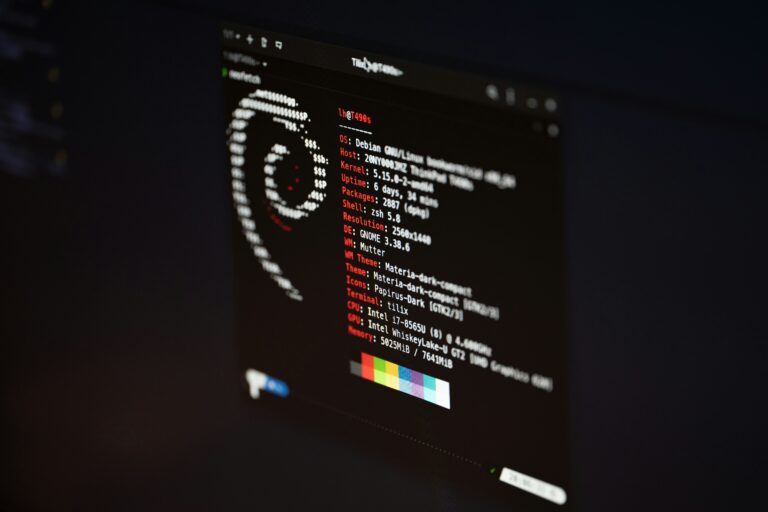
What is Linux?
Linux is an open-source, Unix-like operating system kernel that serves as the core component of various Linux-based operating systems. It was created by Linus Torvalds in 1991 and has since become one of the most prominent and widely used operating systems worldwide. Linux is known for its stability, security, and flexibility. It is widely used in servers, embedded systems, and desktop computers. Many popular operating systems, such as Ubuntu, Fedora, Debian, and CentOS, are Linux distributions. Additionally, Android, the mobile operating system, is also built on the Linux kernel.
About Linux
Here are some key features about Linux:
Open Source and Free:
Linux is distributed under an open-source license (typically the GNU General Public License), which means it is freely available to anyone to use, modify, and distribute. This open-source nature has led to a diverse and active community of developers and users.
Kernel vs. Distributions:
Linux is often misunderstood as a single operating system, but it’s more accurately described as a kernel. A kernel is the core component of an operating system, responsible for managing hardware resources and providing essential services. Various Linux distributions (commonly referred to as “distros”) are built around the Linux kernel. These distributions bundle the kernel with other software, including system utilities, libraries, desktop environments, and package managers to create complete, user-friendly operating systems. Popular Linux distributions include Ubuntu, Fedora, Debian, CentOS, and Arch Linux.
Multi-Platform Support:
Linux runs on a wide range of hardware platforms, from desktop computers and servers to embedded devices, smartphones, and supercomputers. This versatility is due to the portability and flexibility of the Linux kernel.
Stability and Reliability:
Linux is known for its stability and reliability. It is often chosen for server environments where uptime and robustness are critical. Many large-scale internet services and cloud providers rely on Linux-based systems.
Security:
Linux is renowned for its security features. It benefits from the open-source community’s scrutiny, which helps identify and patch security vulnerabilities quickly. Additionally, Linux allows for fine-grained control over system permissions, enhancing security.
Command-Line Interface (CLI):
Linux provides a powerful command-line interface that allows users to perform a wide range of tasks efficiently. The command-line is a key feature for system administrators, developers, and power users.
Graphical User Interface (GUI):
While Linux is often associated with the command line, it also offers numerous graphical desktop environments like GNOME, KDE, and Xfce, making it user-friendly for those who prefer a GUI.
Package Management:
Linux distributions use package managers (e.g., APT, YUM, and Pacman) to install, update, and manage software packages. This simplifies the process of adding, updating, and removing software.
Community and Support:
Linux has a vibrant and passionate community of users and developers. Online forums, documentation, and support resources are readily available for users seeking help or guidance.
Enterprise Use:
Linux is commonly used in enterprise environments due to its reliability and cost-effectiveness. Major corporations, government organizations, and research institutions use Linux for various purposes.
Influence on Open Source:
Linux has played a significant role in the growth of the open-source software movement. It has inspired and influenced countless open-source projects, leading to the development of open-source alternatives to many proprietary software applications.
Why you Should Learn Linux?
Learning Linux can be highly beneficial for individuals, professionals, and organizations for a variety of reasons:
Versatility:
Linux is used in a wide range of environments, from servers and embedded systems to desktop computers and mobile devices. Learning Linux equips you to work with diverse platforms and industries.
Career Opportunities:
Linux skills are in high demand, especially in the IT and tech industries. Many job postings in fields such as system administration, DevOps, cybersecurity, and software development list Linux proficiency as a requirement or a strong asset.
Open-Source Philosophy:
Linux is a cornerstone of the open-source software movement, which promotes collaboration, transparency, and community-driven development. Learning Linux aligns with this philosophy and supports open-source initiatives.
Cost-Efficiency:
Linux is free and open source, which can lead to significant cost savings for organizations. Businesses that use Linux-based solutions can reduce software licensing costs.
Security:
Learning how to secure Linux systems can enhance your cybersecurity skills and help you protect data and resources effectively.
Customization:
Linux offers a high degree of customization. You can tailor your Linux system to your specific needs, whether you’re a developer, system administrator, or power user.
Learning Opportunities:
Linux provides ample opportunities for learning and experimentation. You can explore the command line, shell scripting, and system administration, which can improve your problem-solving and technical skills.
Server Administration:
If you plan to work with servers or web hosting, Linux skills are essential. Many web servers, databases, and cloud platforms run on Linux.
Development Environment:
Linux is a preferred platform for software development. Many programming tools and languages are well-supported on Linux, making it an excellent choice for developers.
Compatibility and Interoperability:
Understanding Linux can help you work with cross-platform and open standards, fostering compatibility between different systems and applications.
Ethical Hacking and Cybersecurity:
Linux is a common choice for ethical hackers and cybersecurity professionals. Learning Linux can be a steppingstone to a career in these fields.
Internet of Things (IoT):
As the IoT continues to grow, Linux-based systems are a common choice for IoT devices. Learning Linux is valuable for anyone interested in IoT development or management.
Personal Projects:
Whether you want to set up a home server, experiment with new software, or tinker with hardware, Linux provides the freedom and tools to explore your personal projects.
Conclusion
Linux is a versatile, open-source operating system kernel that serves as the foundation for a wide variety of Linux distributions. Its flexibility, stability, security, and the vast array of available software and support make it a popular choice for users, developers, and organizations across the world. Learning Linux can open doors to a wide array of career opportunities, enhance your technical skills, and allow you to work with powerful, reliable, and cost-effective technologies. Whether you’re an IT professional, a developer, or an enthusiast, Linux is a valuable skill set to acquire.
That’s All Folks!
If you want to keep up to date with our latest posts, or you just want to say hi, why not follow us on Twitter/X
If you want to show your support, why not browse through our Products page and see if there is anything you need. Meganano receives a small profit from each sale made via our affiliate links.



